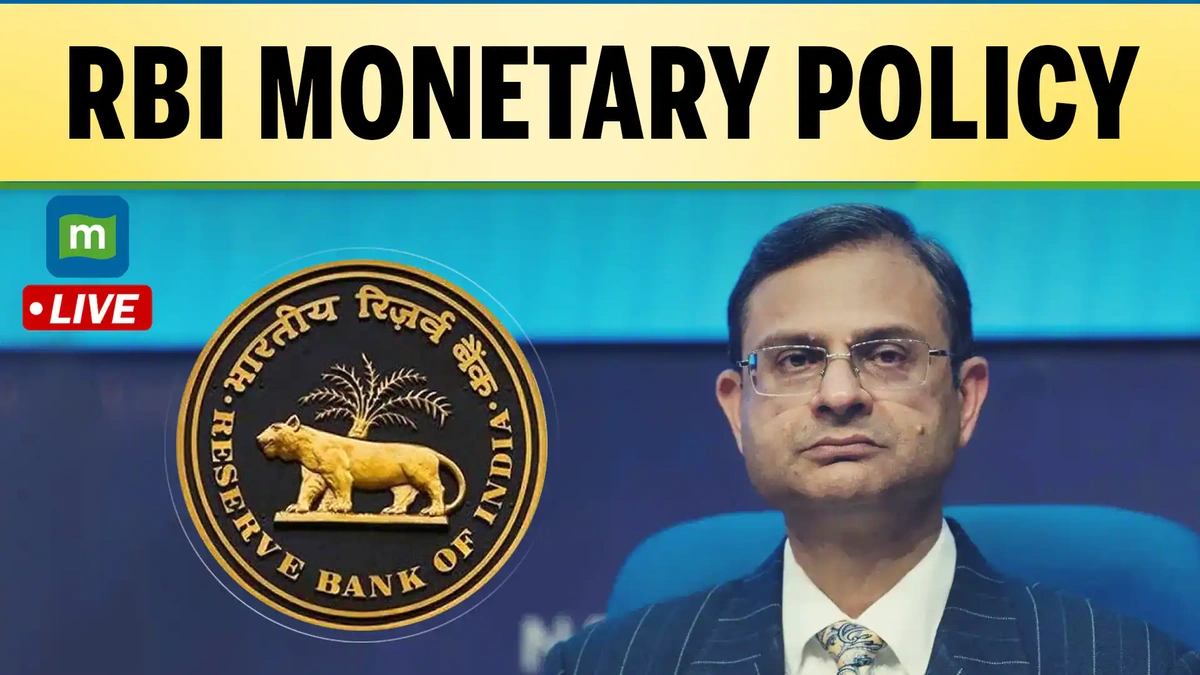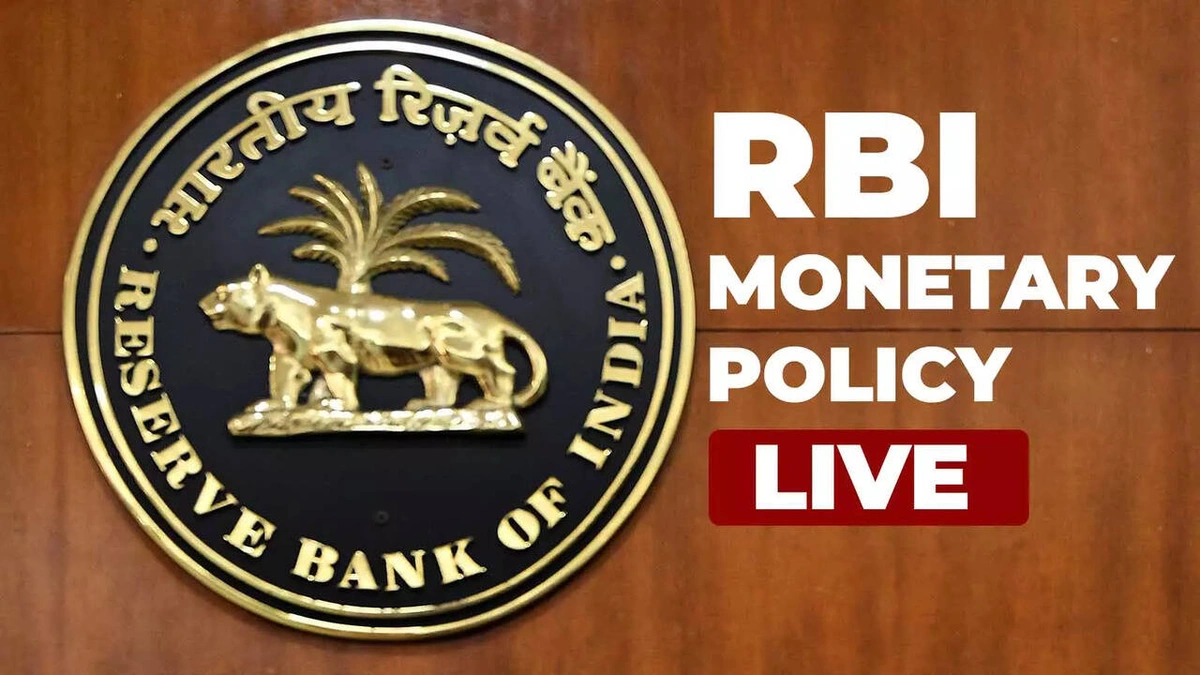Decoding the RBI Policy | What It Really Means for You
The Reserve Bank of India (RBI) policy announcements they can feel like cryptic messages from the financial gods, can’t they? We see the headlines: “Repo rate unchanged!” or “CRR adjusted!” But what does it all really mean for us, the people actually living and working in India? That’s what we’re diving into today. Forget the jargon; let’s talk about what’s happening and, more importantly, why it matters.
The “Why” | Beyond the Numbers

So, the RBI monetary policy committee (MPC) just wrapped up its meeting. And let’s be honest, the initial reports can feel a bit… sterile. Numbers flying around, economic forecasts – it’s easy to get lost in the details. But the key question is: why are they doing this? The ‘why’ is almost always about managing two big things: inflation and economic growth . It’s a delicate balancing act, like trying to juggle flaming torches on a tightrope. For India, specifically, the RBI has to consider everything from global oil prices to the monsoon season. Seriously. Good rains mean good crops, which means lower food prices, which helps keep inflation in check. Wild, right?
What fascinates me is the ripple effect. A change in the repo rate – that’s the rate at which banks borrow money from the RBI – doesn’t just affect banks. It affects everyone. If the repo rate goes up, banks will likely increase their lending rates for home loans, car loans, and business loans. This can cool down the economy because borrowing becomes more expensive. But if the repo rate goes down, loans become cheaper, and businesses and individuals are more likely to borrow and spend, stimulating growth. It’s all connected. Let me rephrase that for clarity – you are directly affected by every policy decision they make, as it has a trickling effect.
How Does It Affect Your Wallet?
Now, let’s get practical. How does all this affect your wallet? If you’re planning to buy a house, keep a close eye on those interest rates . Even a small change can make a big difference in your monthly EMI. And if you’re running a business, the cost of borrowing will impact your investment decisions. But there’s more to it than just loans. The RBI’s policies also influence things like the exchange rate. A strong rupee can make imports cheaper, which can help keep inflation in check. But it can also make Indian exports more expensive, which can hurt our exporters. This affects everything.
Here’s the thing: the RBI’s job isn’t easy. They have to consider so many different factors and try to make decisions that will benefit the entire country. And sometimes, those decisions might not be popular. For example, raising interest rates to fight inflation can be painful in the short term, but it can prevent a bigger economic crisis down the road. I initially thought this was straightforward, but then I realized that the RBI is actually trying to predict the future. They’re looking at economic data, making forecasts, and trying to anticipate what’s going to happen next. And that’s a tough job for anyone.
The Emotional Rollercoaster of Economic Uncertainty
Let’s be honest, economic uncertainty can be stressful. We see the headlines about global economic slowdown , and it’s easy to feel anxious. What if I lose my job? What if my investments tank? But it’s important to remember that the economy is always changing. There are ups and downs, booms and busts. The key is to stay informed and make smart financial decisions. A common mistake I see people make is panicking and making rash decisions based on fear. It’s important to take a deep breath, do your research, and talk to a financial advisor if you need help. I suggest you reach out to professional for your queries.
According to theofficial RBI website , the central bank closely monitors global developments and factors them into its policy decisions. This is why understanding the broader economic context is so important. For example, if the US Federal Reserve raises interest rates, it can put pressure on the RBI to do the same. This is because higher interest rates in the US can attract foreign investment, which can weaken the Indian rupee.
RBI’s Role in Financial Stability
The RBI isn’t just about interest rates and inflation. It also plays a crucial role in maintaining financial stability . This means ensuring that the banking system is sound and that there are no major disruptions to the flow of credit. One way the RBI does this is by regulating banks and setting rules for how much capital they need to hold. This helps to prevent banks from taking on too much risk. Also, CRR or Cash Reserve Ratio influences the liquidity. The central bank also acts as a lender of last resort to banks that are facing financial difficulties. The policies are to maintain financial stability, and promote economic growth. It is as easy as that.
Navigating the Future | Staying Informed
So, what’s the takeaway? The RBI’s policies are complex, but they have a direct impact on our lives. By staying informed and understanding the ‘why’ behind the decisions, we can make better financial choices and navigate the economic landscape with greater confidence. It is essential to understand repo rate and reverse repo rate and how these tools are deployed by RBI. The one thing you absolutely must do is to look beyond the headlines and dig deeper to understand the implications of each policy announcement. What fascinates me is how the RBI manages to steer the economy through different challenges. It’s a constant balancing act, and it requires a lot of skill and expertise.
FAQ Section
Frequently Asked Questions
What if I don’t understand all the economic jargon?
Don’t worry, you’re not alone! Focus on the key takeaways: How will this affect my loans, my investments, and the overall economy? There are plenty of resources online that can help you understand the basics.
How often does the RBI announce its policy?
The MPC typically meets every two months to review the monetary policy stance . The dates of these meetings are usually announced in advance on the RBI website.
Where can I find reliable information about the RBI’s policies?
The best place to start is the official RBI website . You can also find news and analysis from reputable financial news sources.
What is the impact of the global economic situation on RBI policy?
The RBI closely monitors global economic developments and factors them into its policy decisions. Things like global growth, inflation, and interest rates can all influence the RBI’s actions.
How can I prepare for potential changes in interest rates?
Consider diversifying your investments and avoiding excessive debt. Talk to a financial advisor for personalized advice.
Ultimately, understanding the RBI policy isn’t just about economics; it’s about understanding our own financial well-being in a constantly evolving world. It’s about being empowered to make informed decisions and navigate the complexities of the Indian economy with confidence.













